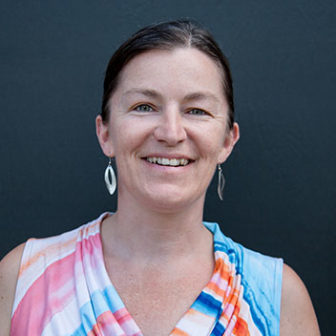
Rido/Shutterstock
.
What is the purpose of family engagement in 21st Century Community Learning Center (21st CCLC) programs? As a 21st CCLC program director, this is just one of many “spinning plates” in delivering high-quality programming to students while meeting grant requirements and deliverables. How do I justify to my frontline staff that is important for them to engage with families, not just students?
The obvious answer to the purpose of family engagement is clearly defined in the incredibly detailed, many-paged Department of Education “21st CCLC Request for Proposals”:
- To provide educational opportunities and activities for parents/caregivers and their families that will enhance the academic and social-emotional development of youth,
- To provide information about topics and resources that will promote overall family education, and could include opportunities and activities for adult parents/caregivers that will enhance their own educational development.

Trina Dorn
There is an abundance of research to support why these goals are so important, including outcomes related to reducing chronic absenteeism and an overall increase in student academic success. So what is in question here? I am not here to argue these goals are unimportant — or that family engagement should not be part of what we do in 21st CCLC programs. As a program director and educator I deeply value parents as partners.
However, when reality sinks in and my efforts — and those of my frontline staff — to schedule events, reach out to families, invite them to volunteer, etc. are met with low response rates and no-shows at family events … it is difficult to justify the efforts. We see our young students feeling let down that their families are not there — why would we want to set them up for disappointment?
I have been grappling with this for some time. Why do we do family engagement and how do we do it effectively? Besides the obvious requirement of 21st CCLC and the desired outcomes of enhancing students’ academic social-emotional development and that of family members’ own educational development, here is what makes family engagement so important: We need as many allies in the 21st CCLC world as we can get. Without advocates voicing their support for 21st CCLC funding, these programs are in danger of being defunded at the federal level.
So how do we do this? How do we engage families in a way that supports the very existence of the programs that serve their children?
GET CREATIVE
Let’s be realistic, families are incredibly busy and getting out of work to attend an event may just not be practical. In an advocacy brief published by Afterschool Alliance, 76% of parents in Maine agreed that after-school programs help them keep their jobs. Program directors and frontline staff have to get creative in ways to engage families. Vary the location of events, head to centralized spots (e.g., community centers), survey parents to find patterns in when they actually are available, send home projects families can do together — on their own time. Not all family engagement activities will work for all families. Diversify your efforts.
BE SPECIFIC
Two years ago, I decided to change some questions on surveys I send out to families. Instead of asking “Would you be willing to volunteer in our programs?” I changed the question to ask specifically “Would you be willing to … come in to read to students? Chaperone a field trip? Attend an event? Etc.” My response rate went from about 5% of families saying yes to volunteering to 40% checking the box next to one of the specific requests. Few people will say yes to an ask of their time if they don’t know what they’re signing up for.
BE DIRECT
Families need to know the state of things in the 21st CCLC funding world. Certainly not many are following the political trends when it comes to federal level policy and legislation. Be direct: Let them know that a reduction or elimination in funding would mean no program for their child. If your program operates within the walls of a public school, many families may simply not be aware of the danger. They may assume the program is as stable as public schooling (unfortunately, FERPA does not apply to out-of-school time programs). Don’t be afraid of being too blunt. Don’t be afraid you are asking too much, or for a favor. They’re not doing us any favors — this is preserving the program for their child.
HAVE FAITH
Program directors and frontline staff need to have faith in families. When families don’t attend events it does not mean they are not supporters and advocates. Of course, all families want the best for their child. Of course they believe in the value of our program. That is why they trust us with their children. We need to have faith that families can and will contribute in whatever way they can to advocate for us. They are doing it for their child.
KEEP TALKING
Trust in the power of word-of-mouth. Be diligent in communications and keep spreading the message to as many families and stakeholders as you possibly can. People who believe in your program — and who realize it may be in danger of going away without funding and action — will start talking to others. Word will spread. Invite families to join advocacy efforts, speak to their government representatives, and — if they are truly “fired up” — invite them to participate in organized rallies. Connect them with your state out-of-school time network or the Afterschool Alliance.
Family engagement is without a doubt a difficult thing to be successful at. If you are a 21st CCLC director or frontline staff, ask yourself how many “spinning plates” you have. With all your competing priorities, what ends up falling to the bottom of your list? If family engagement is your answer, you may want to reflect on the power of parents as partners and advocates — it may just help to keep your program alive.
Trina Dorn serves as assistant director for LearningWorks Afterschool & Summer in Portland, Maine. These programs offer STEM-focused academic enrichment and are funded by federal Department of Education 21st Century Community Learning Center grants.





























